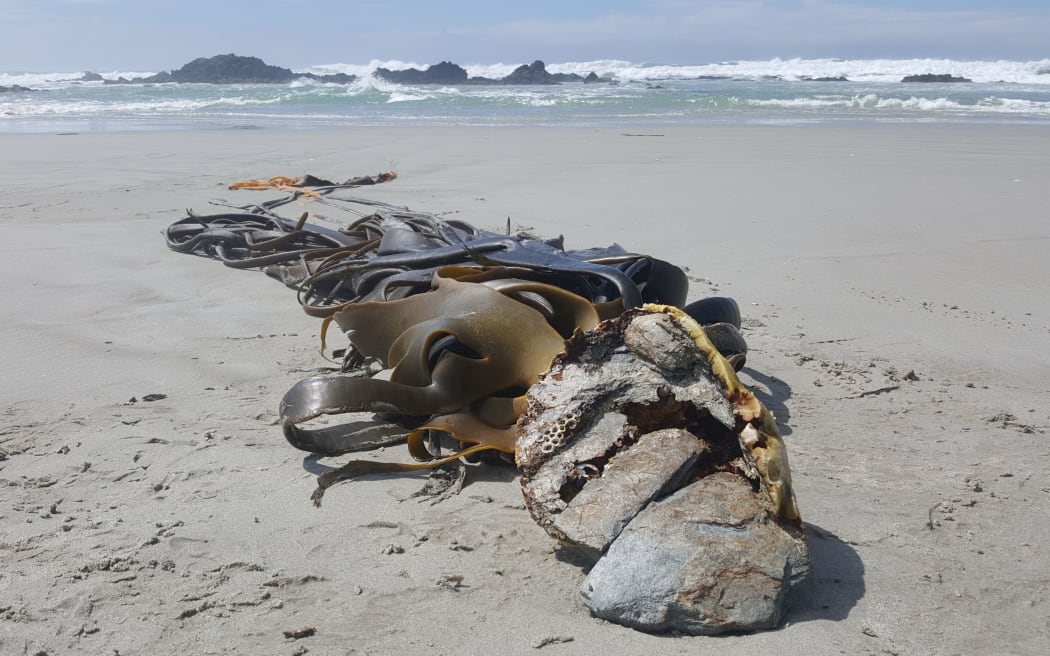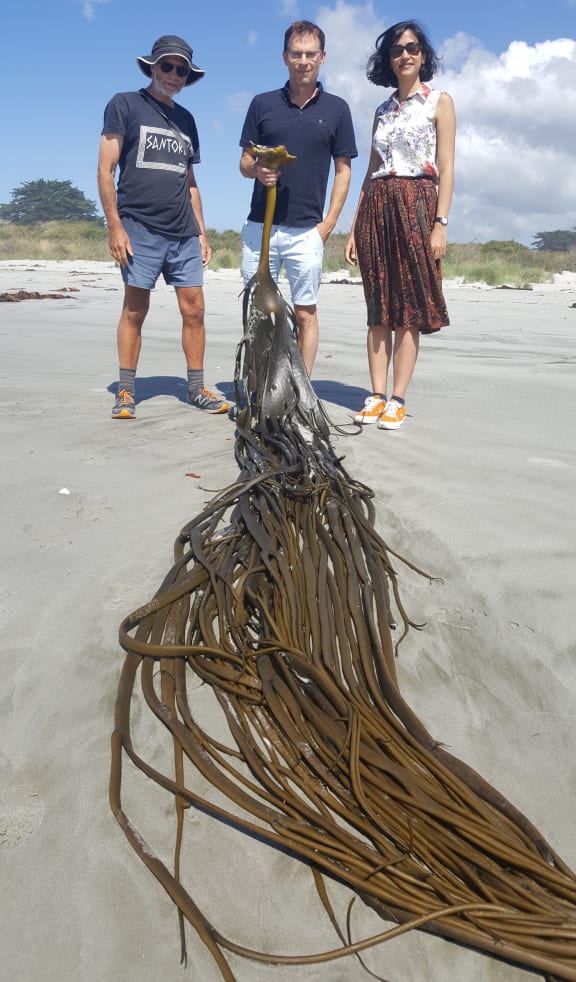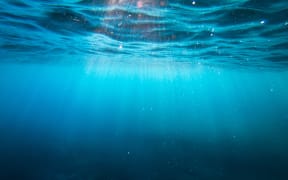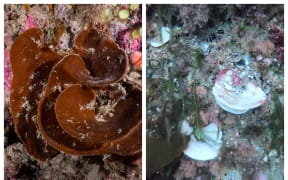
Research is being done into the status of Rimurapa/bull kelp with record marine temperatures expected. Photo: RNZ / Alison Ballance
The Department of Conservation (DOC) is looking at the decline of 'old growth' kelp beds along the Coast Road and the effects of the marine heatwave on its five marine reserves on the West Coast.
Sea temperatures in South Westland are expected to reach record temperatures this summer as an "extreme" marine heatwave for parts of the West Coast and Fiordland heats up.
Metservice oceanographer Dr Joao de Souza said last Friday that surface temperatures may reach an "incredible 6C higher than normal".
Water temperatures of up to 23C have been linked to bull kelp die off, de Souza said.
Instances of more tropical fish species turning up as far south as Haast have been widely reported by West Coast fishermen this summer.
The West Coast Conservation Board was updated in December on the disappearance of the old growth kelp beds along the Coast Road, between Greymouth and Westport.

A DOC report said they appeared to have dwindled in the past 20 years.
Photos taken in 2004 and 2018, and repeated in October at Dolomite Point, Punakaiki, confirmed kelp had "disappeared or dwindled to patchy regrowth".
It was believed the previous marine heatwave of 2021-22 had probably added to the die-off which was seen after the Cyclone Fehi marine heatwave in 2018.
The report said work by the University of Canterbury (and Otago) in collaboration with NIWA and DOC was under way to assess the current bull kelp status, and "to look back in time" more broadly along the western coastline.
DOC marine ranger Don Neale said this week the department was closely watching all five marine reserves, which were a barometer of what was happening more widely as well as being "a refuge".
"Like everyone, we have some interest about what is happening beyond those reserves. What we are doing, at least for now, is having a focus on the bull kelp, particularly in the Punakaiki Marine Reserve."

The decline of Rimurapa/bull kelp on the West Coast has been more recently reported by local collectors of kelp who reported to DOC the decline in the species being washed ashore after big seas. Photo: RNZ / Alison Ballance
He expected more information from observations at the Kahurangi Marine Reserve at the top of the West Coast as a comparison to Dolomite Point.
Neale said their initial concern at Punakaiki arose from the comparative photos of the kelp beds.
The decline in kelp on the beaches after extreme weather events - particularly in 2018 and again earlier last year - had been noted by locals and reported to DOC.
"Likewise, we can help inform the locals about what's happening out there."
Experience from what happened on the Kaikōura coastline after the earthquakes also showed what it might take to see bull kelp return, he said.
"It could take a long time ... if there's continuing heatwaves it will take a long time for it to be re-established."
Water temperature was a factor but as bull kelp was an inter-tidal species there were other factors at play, including how kelp regenerated through seeding via spores, and the effect of low tides causing kelp beds to dry out.
"People might think bull kelp might grow back quickly but it's not actually that straightforward. One of the main problems is that the spores only travel a few hundred metres from the adult (plant). A lot of adult plants have disappeared making it that much hard to re-establish."
The projection was that heatwaves contributing to marine plant die-off would "become more frequent" everywhere, Neale said.
"This bull kelp die-off is one example of what is happening."
One consideration was reseeding the spores of bull kelp along the West Coast, but more science was needed on that.
Local Democracy Reporting is Public Interest Journalism funded through NZ On Air




